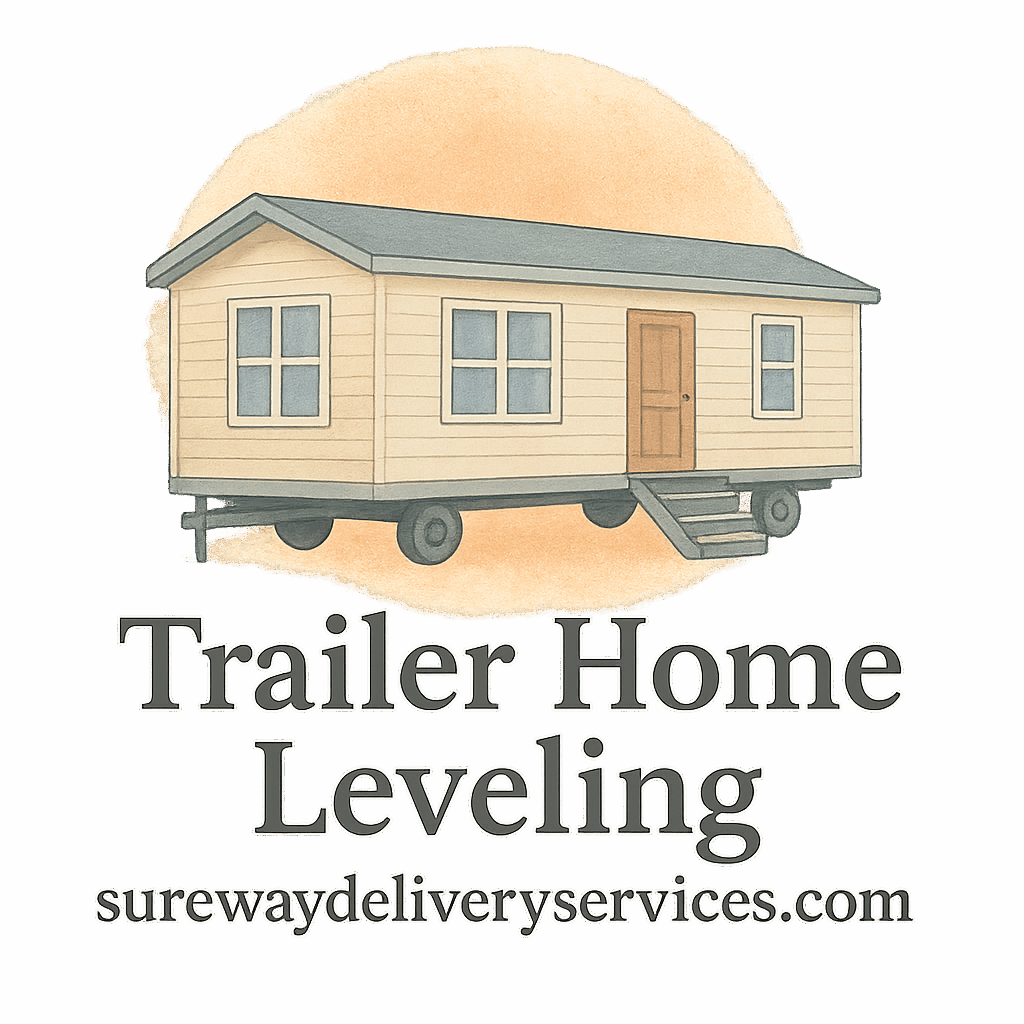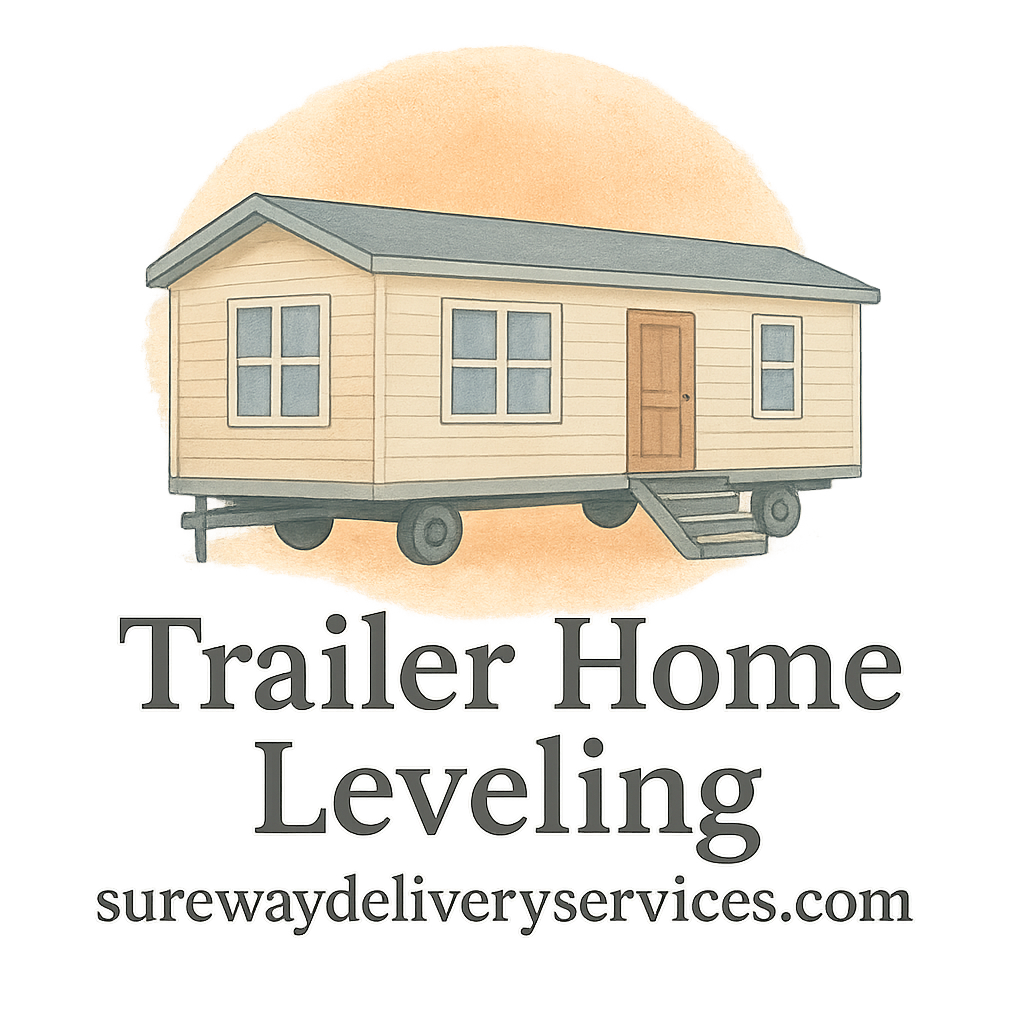Introduction to Trailer Home Leveling
Living in a trailer home is awesome—freedom, affordability, and flexibility all rolled into one. But when your floors start sloping, doors won’t close, or your coffee mug slides off the table, it’s a screaming red flag that you need trailer home leveling.
Trailer home leveling is the process of adjusting your home’s support system to ensure it sits evenly on the ground. If you’re not on level ground, you’re risking structural damage and living in discomfort. Let’s dive into seven quick adjustments you can make right now to bring balance back into your home.
And hey—if you’re new to this whole thing, check out the basics of trailer leveling here.
Why Quick Adjustments Are Essential
Safety Concerns with Unlevel Trailer Homes
A home out of level is more than just annoying—it’s dangerous. Cracks in the walls, shifting frames, and stressed supports can lead to long-term problems. You could even damage your plumbing or wiring.
You’ll find helpful inspection tips on our maintenance and inspection page.
Comfort and Structural Integrity
Imagine living on a boat—everything slightly tilts. That’s what living in an unlevel trailer feels like. The quicker you fix it, the less damage you’ll have down the road. Trust us: early adjustments save money in the long run. Check out these cost-effective tips to avoid an overcharge from service providers.
Tools You Need for Fast Leveling Fixes
Before diving in, gather the right tools. You don’t want to start jacking up your home with a car jack and a prayer.
Essential Jacks and Levels
Bubble Level vs. Laser Level
For accuracy, we recommend a laser level. Bubble levels work fine for spot checks, but laser gives a whole-home picture.
Hydraulic vs. Manual Jacks
Hydraulic jacks are faster and more powerful—perfect for quick adjustments. Manual screw jacks are budget-friendly but need elbow grease.
We cover more on this in our techniques and methods guide.
Safety Gear and Prep Equipment
Gloves, goggles, and wheel chocks. Safety first! If you’re missing something, pause and gear up.
Quick Adjustment #1: Identify the Problem Area
Before you do anything, find out where the unevenness is coming from.
Common Signs of Unevenness
Floor Squeaks and Cabinet Gaps
Feel like your floor has waves? Are your cabinet doors slightly off alignment? Those are dead giveaways.
Doors Not Closing Properly
When doors start swinging or jamming, your trailer is crying out for help.
Bookmark this handy inspection checklist to stay ahead of recurring issues.
Quick Adjustment #2: Secure the Foundation
Check for Settling or Erosion
Soil erosion or water pooling can cause piers to sink. Before you adjust anything, check your home’s base. If it’s shifting, no jack in the world will help unless you address that first.
For budgeting these foundational fixes, read up on cost and budgeting strategies.
Quick Adjustment #3: Use Screw Jacks for Minor Lifts
Step-by-Step Guide to Jacking Up Safely
- Place your level on the floor.
- Identify the low point.
- Insert the screw jack under the beam closest to the problem.
- Turn slowly—don’t overdo it. One quarter-turn at a time.
- Recheck the level.
Need jacks? Browse our curated list of top-reviewed tools here.

Quick Adjustment #4: Shim for Balance
When and Where to Use Shims
Shims are the unsung heroes of trailer home leveling. Insert them between the pier and the beam when small adjustments are needed. They’re great for fine-tuning after a big lift.
We love this shimming technique breakdown.
Quick Adjustment #5: Recheck with a Level
Ensuring Long-Term Stability
After every adjustment, double-check. And not just in one room—walk around with your level. Inconsistencies in different areas mean your home is still off.
For annual checkups, check out this helpful guide to yearly inspections.
Quick Adjustment #6: Inspect Skirting and Piers
Quick Fixes for Skirt Shifts
Your trailer’s skirting can tell you a lot. If it’s warped or cracked, chances are your foundation has moved.
Tighten things up with this pier and skirting maintenance checklist.
Quick Adjustment #7: Book a Professional Inspection
When DIY Isn’t Enough
Sometimes, it’s just too much for one person. That’s when calling in the pros makes sense. Don’t worry—finding the right person is easier than you think.
Check out this trusted page for service hiring tips and real customer reviews.
Final Words on Fast Trailer Home Leveling
Leveling your trailer home doesn’t need to be a multi-day nightmare. These seven quick adjustments are the first line of defense against structural damage and daily annoyance.
Stay proactive, keep a regular inspection schedule, and remember—prevention is always cheaper than repair.
For more leveling secrets, success stories, and maintenance hacks, don’t forget to explore our complete trailer leveling resource hub and related trailer maintenance tips.
FAQs
1. How often should I level my trailer home?
Ideally, check your home’s level every 6 to 12 months. Check out this annual maintenance guide for details.
2. Can I use regular car jacks to level my trailer?
Nope! Use proper trailer leveling jacks for safety and accuracy.
3. What are the most obvious signs that my trailer needs leveling?
Uneven floors, jammed doors, or cracking walls. More signs listed on our inspection tag page.
4. Is professional leveling expensive?
It can be, depending on your situation. Here’s a breakdown of cost expectations.
5. Do I need to level the trailer before winter?
Absolutely! Ground shifts during freeze-thaw cycles. Here are seasonal trailer tips.
6. Are there warning signs before major leveling issues arise?
Yes! Early trailer issues usually show up as tiny shifts and creaks.
7. What should I look for in a leveling service package?
Read through the service package guide to get the most bang for your buck.


